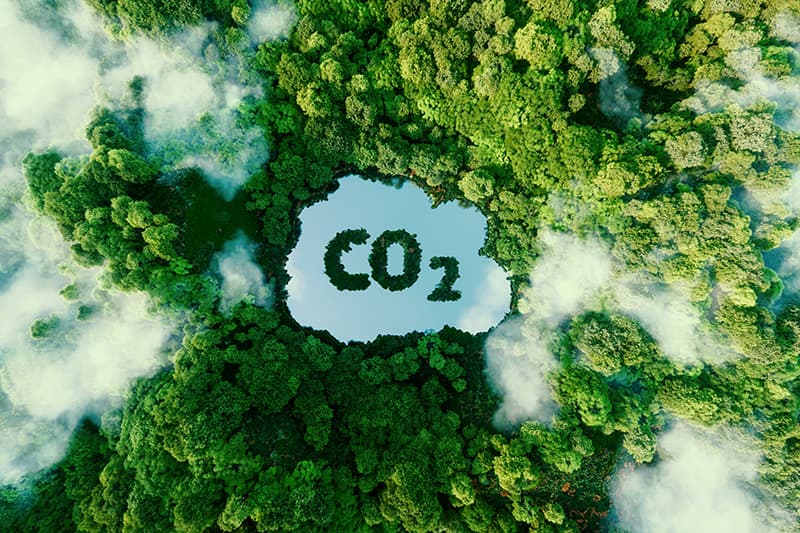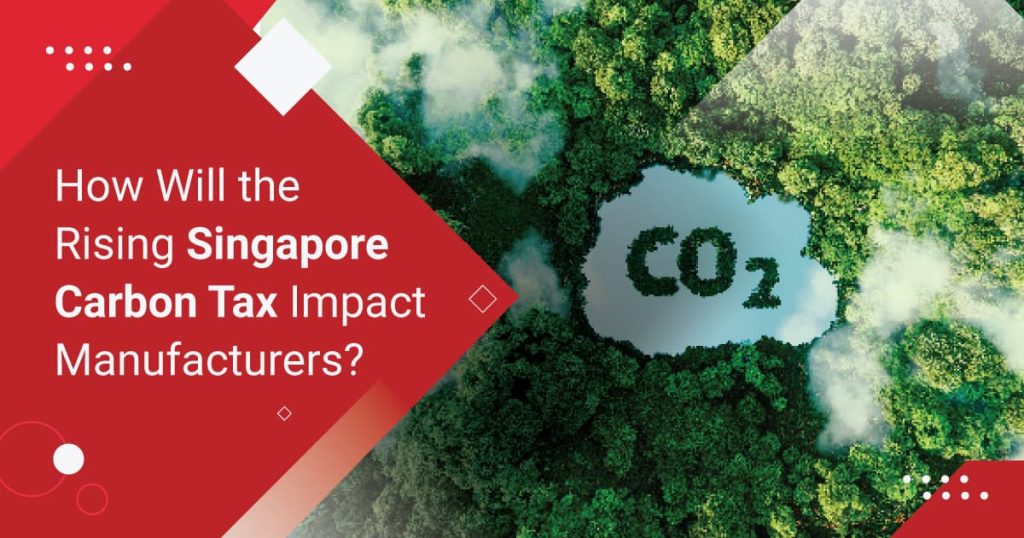As a company that champions industry in Southeast Asia, you might be surprised to know we are bullish about Singapore raising its carbon tax levels progressively from 2024.
This ambitious goal indicates Singapore’s commitment to becoming a leader in sustainability and environmental protection.
The country is taking bold steps to secure a greener and more sustainable future for all, resulting in a stronger economy.
While the increase in carbon tax may seem like a challenge to some, it presents a unique opportunity for businesses, especially those in the manufacturing sector.
It will bring about positive changes that will benefit the environment and improve their operations to make them more competitive in the long run.
Simply put, taking action on climate change is not only the right thing to do for the planet, but it is also good for business.
First, let us take a quick look at what the carbon taxes are, and how they will affect the manufacturing sector in Singapore.
What Are Carbon Taxes?

Carbon taxes are taxes levied on the carbon content of industrial emissions.
The idea behind carbon taxes is to encourage the reduction of greenhouse gas emissions, which contribute to climate change.
Carbon taxes are one of the tools that governments can use to reduce emissions and promote cleaner, low-carbon energy sources.
Why Did Singapore Increase its Carbon Tax?
Singapore’s carbon tax was implemented on January 1, 2019, via the Carbon Pricing Act (CPA).
It is Southeast Asia’s first carbon pricing scheme. The carbon tax is applied to all sectors, including energy-intensive and trade-exposed industries.
Singapore’s carbon tax rate is currently set at S$5/tCO2e (Singapore dollars per ton of carbon dioxide equivalent) from 2019 to 2023 as a transitional period to give emitters time to adjust.
However, the carbon tax levels in Singapore will be raised progressively starting in 2024 to achieve the nation’s climate ambition of net zero emissions by mid-century.
The carbon tax will be increased to $25/tCO2e in 2024 and 2025 and $45/tCO2e in 2026 and 2027. It is expected to reach $50-80/tCO2e by 2030.
The revenue from the carbon tax increase will be used to support decarbonisation efforts, the transition to a green economy, and cushion the impact on businesses and households.
Related Read: Net Zero: Can Singapore Achieve its Ambitious Carbon Goals? »
How Will the Singapore Carbon Tax Affect its Manufacturing Sector?
One key way the rising Singapore carbon tax will impact the manufacturing sector is by providing a strong price signal and impetus for businesses to reduce their carbon footprint.
This is particularly important for energy-intensive and trade-exposed sectors, which will be subject to the carbon tax without exemption.
The tax will encourage businesses to find more efficient and sustainable ways to reduce their carbon tax obligations by putting a price on carbon emissions. Ultimately, it will lead to improved bottom lines and more opportunities.
New Technologies
One of the ways that businesses can reduce their emissions is by investing in low-carbon technologies and carbon markets.
The government’s revised and increased carbon tax trajectory will incentivise businesses to make these investments.
This will help businesses to be more competitive in a low-carbon future and create local demand for high-quality carbon credits to catalyse the development of well-functioning and regulated carbon markets.
Related Read: Sustainability in Singapore: How it Spurs Sustainable Innovation »
Carbon Credits
In addition to investing in low-carbon technologies and carbon markets, businesses can also offset their emissions by surrendering high-quality international carbon credits.
As announced at Budget 2022, companies in Singapore will be able to offset up to 5% of their taxable emissions from 2024 using these credits.
This will provide a cushion for businesses that can source cost-effective carbon credits and help create local demand for high-quality carbon credits.
Transitional Framework
While the carbon tax and the use of international carbon credits are important tools for encouraging businesses to reduce their emissions, transitioning to a low-carbon economy may not be easy for everyone.
Thankfully, the government has introduced a transition framework to give existing emissions-intensive trade-exposed (EITE) companies more time to adjust.
Under this framework, existing facilities in EITE sectors will receive transitory allowances for part of their emissions, based on efficiency standards and decarbonisation targets.
This will help to maintain business competitiveness in the near term and mitigate the risk of carbon leakage.
Doing Our Part to Achieve Singapore’s Climate Goals

InCorp is committed to doing its part to help Singapore achieve its climate ambition and make the transition to a low-carbon economy.
By working together, we can create a brighter and more sustainable future for all.
We encourage other businesses in the manufacturing sector to join us in this effort and embrace the opportunities that Singapore’s rising carbon tax presents.
Looking at it through the right lens, the carbon tax is an opportunity to improve efficiency and competitiveness, drive innovation, and create value.
Find out more about Environmental, Social, and Governance (ESG) compliance and how you can adjust to the new carbon taxes with our suite of ESG services that we can tailor precisely to your needs.
FAQs
How can companies in the manufacturing industry manage their carbon tax obligations?
- They can engage an ESG advisor to provide them with guidance on implementing ESG-related business processes to reduce their carbon tax obligations.
How do I calculate carbon tax in Singapore?
- Singapore’s prevailing carbon tax rate is $5 per tCO2e. The amount taxable can be calculated by multiplying the rate with the carbon dioxide equivalence of GHG emissions.
Who will pay carbon tax in Singapore?
- The tax applies to facilities that directly give off at least 25,000 tCO2e of GHG emissions every year.



